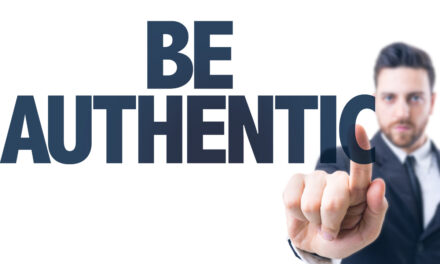Introduction
Embracing the Power of ‘No’: How to Set Boundaries as an Entrepreneur
In the fast-paced world of entrepreneurship, particularly in the digital marketing sphere, the ability to say “no” is not just a skill—it’s a superpower. As coaches and entrepreneurs, the pressure to constantly say “yes” can be overwhelming. Whether it’s to new opportunities, client requests, or the latest marketing trends, the temptation to take on more than we can handle is a common pitfall. However, embracing the power of “no” is crucial for sustainable growth, personal well-being, and business success.
For coaches who are navigating the complexities of scaling their businesses using digital marketing, understanding when and how to set boundaries is vital. It’s about recognizing that saying no to certain things means saying yes to focus, quality, and strategic growth. This blog post aims to guide you through the art of setting these boundaries, ensuring that your journey in scaling your business is both successful and manageable.
We’ll explore why the importance of saying no as an entrepreneur cannot be overstated. It’s not just about avoiding burnout; it’s about prioritizing what truly matters for your business. We’ll delve into the nuances of entrepreneurial self-care, which often starts with the ability to turn down requests that do not align with your goals or values.
Moreover, we’ll provide practical advice on balancing work and personal life, a challenge that many entrepreneurs face. This balance is essential for maintaining creativity, motivation, and overall well-being, which are critical components of success in digital marketing.
As we embark on this exploration, remember that saying no is not a sign of weakness or missed opportunities. Instead, it’s a strategic decision that can lead to more meaningful yeses. By the end of this post, you’ll have a clearer understanding of how to embrace the power of “no” and use it to set effective boundaries as an entrepreneur in the digital marketing world.
The Importance of Saying No as an Entrepreneur
A Strategic Tool for Growth and Focus
In the entrepreneurial journey, particularly in the realm of digital marketing, the significance of saying no cannot be overstated. It’s a strategic tool that, when used wisely, can lead to substantial growth and sharper focus. For coaches and entrepreneurs, especially those new to the digital marketing landscape, understanding this concept is pivotal.
Prioritizing Your Core Objectives
The first step in harnessing the power of no is recognizing that not every opportunity aligns with your core business objectives. In digital marketing, where trends and opportunities emerge rapidly, it’s easy to get sidetracked by projects or collaborations that seem lucrative but don’t align with your long-term vision. Saying no to these distractions allows you to concentrate on initiatives that truly matter, ensuring that your resources are invested in avenues that yield the most benefit.
Maintaining Quality Over Quantity
Quality should always trump quantity, a principle that holds especially true in digital marketing. Spreading yourself too thin by taking on too many clients or projects can lead to a decline in the quality of your work. This can harm your reputation and business in the long run. By saying no, you maintain a manageable workload, which allows you to deliver exceptional results and build a stronger, more loyal client base.
Avoiding Burnout and Fostering Creativity
Entrepreneurial burnout is a real and serious issue. Continuously saying yes to every request or opportunity can lead to stress, exhaustion, and a decrease in creativity—your most valuable asset in the digital marketing space. By setting boundaries and saying no, you give yourself the space to recharge and foster creativity, which is essential for innovative marketing strategies and campaigns.
Conclusion
In essence, embracing the power of no as an entrepreneur is about making strategic choices that align with your goals, maintain the quality of your work, and safeguard your well-being. It’s a skill that, when mastered, can significantly enhance your effectiveness and success in the competitive world of digital marketing.
Understanding Your Limits: Identifying When to Say No
Recognizing Overcommitment
One of the key aspects of successful entrepreneurship, especially in digital marketing, is understanding your limits. Identifying when to say no begins with a clear assessment of your current commitments. Are you finding yourself constantly working late, missing deadlines, or feeling overwhelmed? These are telltale signs of overcommitment, signaling that it’s time to start saying no. As a coach or entrepreneur, acknowledging your capacity is crucial for maintaining the quality of your work and your well-being.
Aligning with Your Business Goals
Every opportunity that comes your way should be evaluated against your business goals. Ask yourself: Does this align with my long-term objectives? Will it contribute to my growth in the digital marketing arena? If the answer is no, it’s a clear indication that you should decline. This strategic approach ensures that every yes is a step towards your desired direction, rather than a diversion.
Evaluating Opportunity Costs
In the digital marketing world, time is a precious commodity. Every project you take on has an opportunity cost. When considering a new commitment, think about what you might be giving up. Could your time be better spent on other projects that are more profitable or fulfilling? If taking on something new means sacrificing something more valuable, it might be time to say no.
Listening to Your Instincts
Often, your gut feeling is a reliable indicator. If something doesn’t feel right, it probably isn’t. Trusting your instincts is particularly important in digital marketing, where trends and opportunities can be fleeting and not all are suited for your business model or ethos.
Conclusion
Understanding when to say no is a delicate balance of recognizing your limits, aligning opportunities with your business goals, evaluating opportunity costs, and trusting your instincts. Mastering this skill is essential for any entrepreneur, especially in the dynamic field of digital marketing, where the right no can be just as powerful as the right yes.
Balancing Work and Personal Life
The Challenge of Work-Life Harmony
In the world of entrepreneurship, especially in the digital marketing sector, achieving a balance between work and personal life is a formidable challenge. The blurred lines between professional and personal time can lead to an all-consuming work culture. However, for sustainable success and well-being, finding harmony between these two spheres is essential.
Setting Boundaries for Work Time
A crucial step in balancing work and personal life is setting clear boundaries. This might mean defining specific work hours and sticking to them, even when working from home. It’s about being disciplined enough to say no to work outside these hours. This boundary-setting not only helps in managing time as an entrepreneur but also signals to clients and colleagues that your personal time is valuable and non-negotiable.
Prioritizing Tasks and Delegation
Effective time management is key in maintaining this balance. Prioritize tasks based on their importance and urgency. Learn to delegate tasks that can be handled by others. This not only frees up your time but also empowers your team. In digital marketing, where trends and demands can shift rapidly, prioritizing and delegating ensures that you’re focusing on the most impactful activities.
The Role of Digital Tools
Leverage digital tools for better time management. Tools like project management software, digital calendars, and automation tools can streamline your workflow, making it easier to separate work from personal life. As a digital marketing professional, embracing these tools can significantly enhance productivity and work-life balance.
Taking Time for Self-Care
Remember, self-care is not a luxury; it’s a necessity. Regular breaks, hobbies, exercise, and spending time with loved ones are crucial. They not only rejuvenate you but also enhance your creativity and efficiency – vital traits in the dynamic field of digital marketing.
Conclusion
Balancing work and personal life as an entrepreneur in digital marketing requires setting boundaries, prioritizing tasks, leveraging digital tools, and committing to self-care. This balance is not just beneficial for your personal well-being; it’s a cornerstone for long-term business success and growth.
Assertiveness in Entrepreneurship: Communicating Boundaries
The Art of Assertive Communication
In the entrepreneurial world, particularly in digital marketing, assertiveness is a key skill in communicating boundaries. It’s about being clear and firm about your limits, without being aggressive or passive. This skill is crucial for entrepreneurs who must juggle multiple roles and responsibilities while maintaining their own well-being.
Clear, Direct, and Respectful Communication
The foundation of assertiveness is clear, direct, and respectful communication. When you need to say no, be straightforward about it. Avoid ambiguous language that leaves room for misinterpretation. For instance, instead of saying, “I might not have time for this,” say, “I cannot commit to this project due to my current workload.” This clarity helps in setting realistic expectations with clients and team members.
Expressing Needs and Limits
Part of being assertive is openly expressing your needs and limits. If a client’s request conflicts with your priorities or values, explain your stance honestly. For example, if a project deadline is unrealistic, communicate your concerns and propose a more feasible timeline. This approach not only sets boundaries but also fosters mutual respect and understanding.
The Role of Body Language and Tone
In assertive communication, your body language and tone are as important as your words. Maintain a calm and confident tone, and use body language that conveys firmness yet openness. This is particularly important in digital marketing, where video calls and virtual meetings are common.
Practicing Empathy
While being assertive about your boundaries, it’s also important to practice empathy. Understand the other party’s perspective and acknowledge their needs. This empathetic approach can lead to more amicable and productive negotiations and solutions.
Conclusion
Assertiveness in entrepreneurship, especially in the field of digital marketing, is about communicating your boundaries clearly, directly, and respectfully. It involves expressing your needs and limits, using appropriate body language and tone, and practicing empathy. Mastering this skill is essential for maintaining healthy professional relationships and ensuring personal and business well-being.
Building Healthy Business Relationships
Fostering Respect through Boundaries
In the entrepreneurial journey, particularly in digital marketing, building healthy business relationships is pivotal. A key component of this is the ability to set and respect boundaries, which fosters mutual respect. Saying no, when necessary, can actually strengthen professional relationships by establishing clear expectations and trust.
Communicating Boundaries Clearly
Clear communication of your boundaries is essential in maintaining healthy business relationships. It’s important to articulate your limits regarding project timelines, work scope, and availability. This clarity prevents misunderstandings and sets a foundation for a respectful and productive working relationship. For instance, if a project doesn’t align with your expertise or values, politely declining it can lead to respect for your professionalism and honesty.
The Balance of Give and Take
Healthy business relationships are built on a balance of give and take. While it’s important to be accommodating, consistently saying yes to demands that strain your resources or conflict with your business goals can lead to resentment and burnout. Conversely, a well-placed no can demonstrate your commitment to quality and your business ethics, which are highly valued in the digital marketing industry.
Long-Term Trust and Credibility
Saying no when necessary can actually enhance your credibility and trustworthiness. Clients and colleagues who understand and respect your boundaries are more likely to trust your judgment and expertise. This trust is crucial in digital marketing, where strategies and campaigns often require a high level of creativity and innovation.
Conclusion
Building healthy business relationships as an entrepreneur in digital marketing involves clear communication of boundaries, maintaining a balance of give and take, and fostering long-term trust and credibility. Embracing the power of no is not just about protecting your interests; it’s about cultivating respectful and mutually beneficial professional relationships.
Case Studies: Successful Entrepreneurs Who Said No
Steve Jobs: Simplifying for Success
A classic example of the power of saying no is Steve Jobs, the co-founder of Apple. Jobs was renowned for his ability to simplify and focus, often saying no to numerous projects to concentrate on a few key products. This approach was pivotal in Apple’s success, leading to groundbreaking products like the iPhone and iPad. Jobs’ philosophy was that saying no to a thousand things allowed Apple to focus on the innovations that truly mattered.
Warren Buffett: The Investment of ‘No’
Warren Buffett, one of the most successful investors of all time, attributes much of his success to saying no. He famously said, “The difference between successful people and really successful people is that really successful people say no to almost everything.” This philosophy has guided Buffett’s investment strategy, allowing him to focus on opportunities that align perfectly with his criteria, leading to immense long-term success.
Arianna Huffington: Prioritizing Well-being
Arianna Huffington, the co-founder of The Huffington Post, learned the importance of saying no for personal well-being. After collapsing from exhaustion, she re-evaluated her approach to work and life. This led to her advocating for work-life balance and the importance of rest, topics she explores in her book “Thrive.” Her experience underscores the significance of saying no to relentless work pressure in favor of health and well-being.
Conclusion
These case studies of successful entrepreneurs like Steve Jobs, Warren Buffett, and Arianna Huffington illustrate the power of saying no. Their experiences show that saying no can lead to focused success, wise decision-making, and a balanced, healthy life, lessons that are invaluable for entrepreneurs in any field, including digital marketing.
Digital Marketing and the Power of No
Strategic Decision-Making in Digital Marketing
In the dynamic world of digital marketing, the power of saying no is a strategic asset. The digital landscape is filled with endless opportunities and tactics: social media platforms, SEO strategies, content marketing, email campaigns, and more. However, not every trend or tactic will align with your business goals or audience. The ability to discern and say no to non-aligned strategies is crucial for focused and effective marketing.
Quality Over Quantity in Campaigns
The mantra of quality over quantity is particularly relevant in digital marketing. It’s tempting to jump on every new trend or platform, but spreading your efforts too thin can dilute your brand message and impact. By saying no to certain channels or tactics, you can concentrate your resources on campaigns that truly resonate with your target audience and yield better ROI.
Saying No to Overcommitment
Digital marketing requires constant learning and adaptation, but it’s also important to recognize your limits. Taking on more campaigns or clients than you can effectively manage can lead to subpar results and burnout. Saying no to overcommitment allows you to maintain a high standard of work, ensuring long-term success and client satisfaction.
Conclusion
In conclusion, embracing the power of no in digital marketing is about making strategic choices that enhance the effectiveness of your campaigns, maintain the quality of your work, and ensure sustainable growth in your digital marketing endeavors.
Conclusion
In summary, embracing the power of “no” is a critical skill for entrepreneurs, especially in the realm of digital marketing. It’s about strategic focus, quality over quantity, and maintaining a healthy work-life balance. By setting clear boundaries and prioritizing your goals, you can enhance your business’s growth and your personal well-being. Remember, each no is an opportunity to say yes to what truly matters. As you continue to scale your business, let the art of saying no be a guiding principle in your journey, leading to more meaningful successes and a fulfilling entrepreneurial experience.











